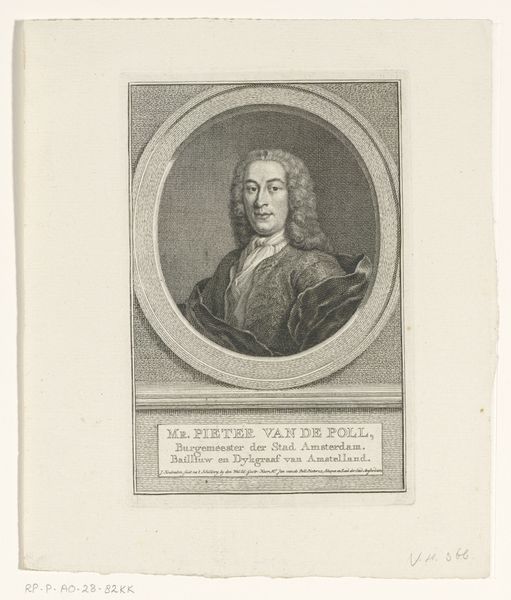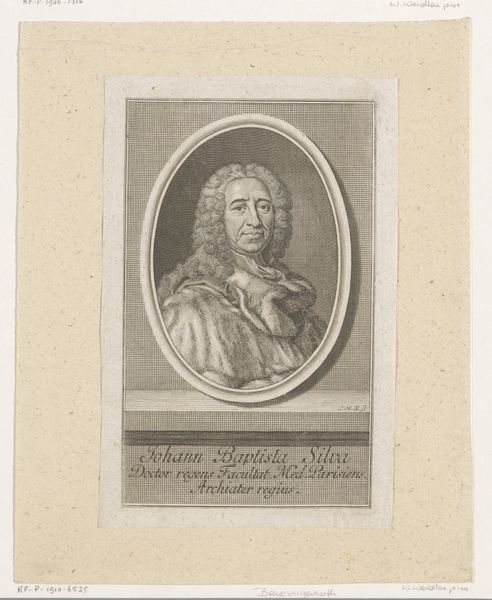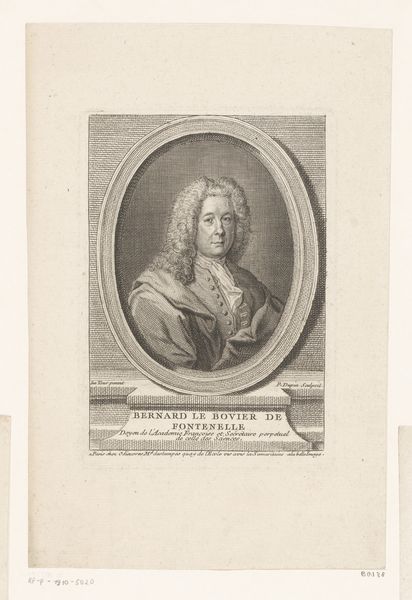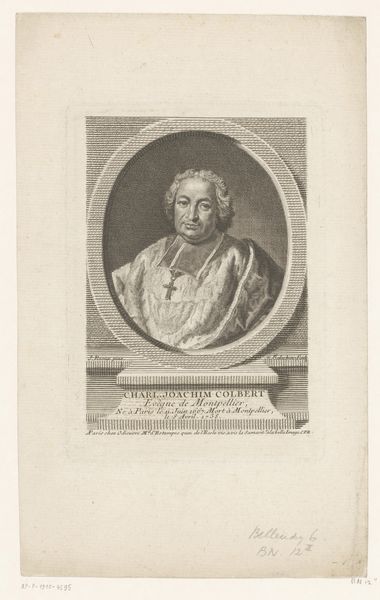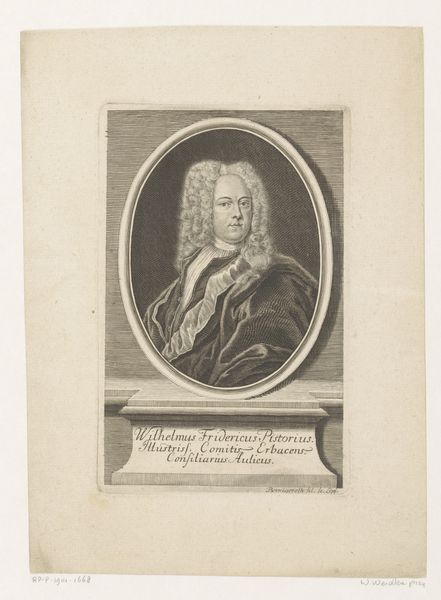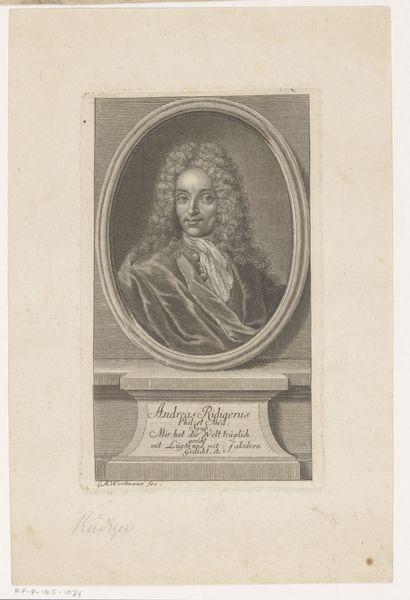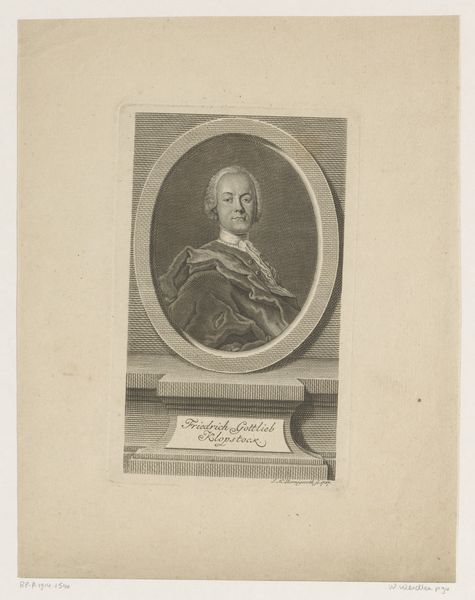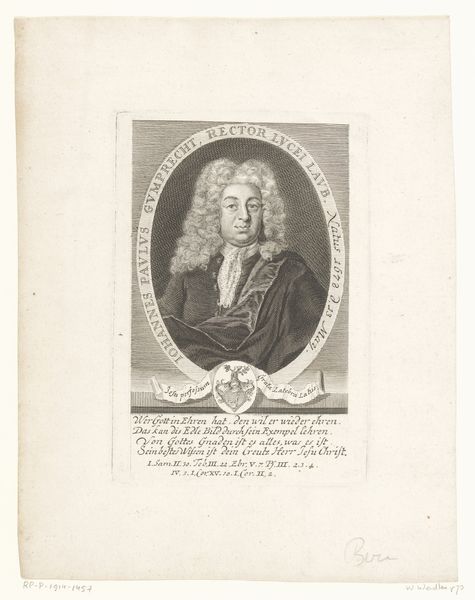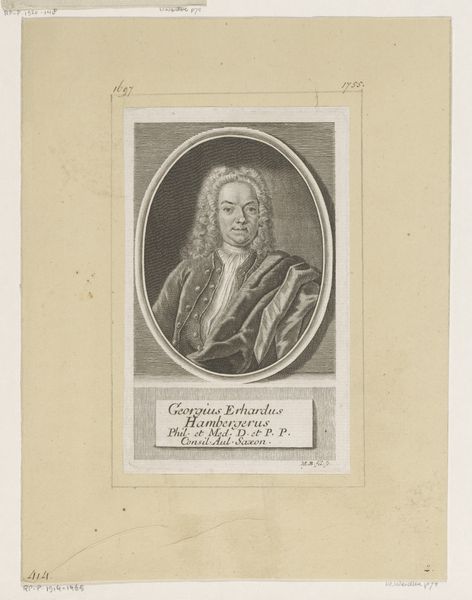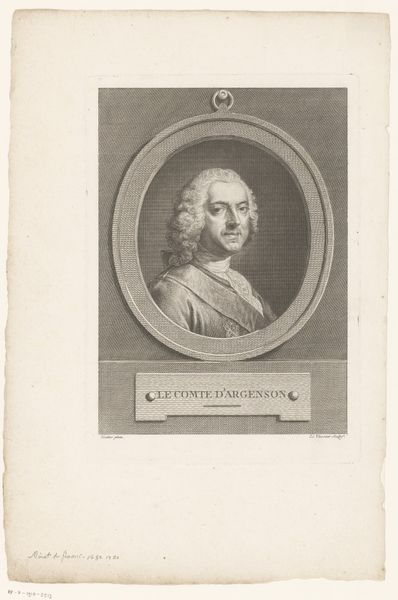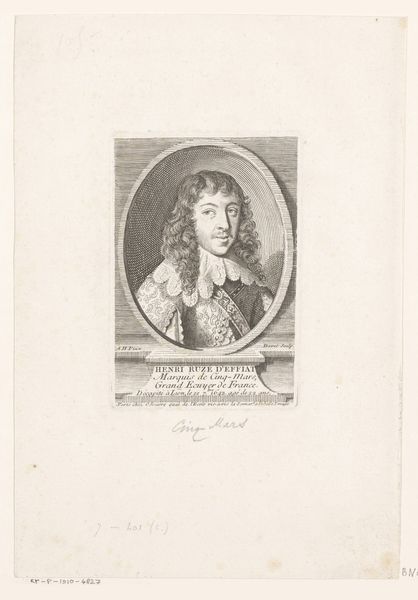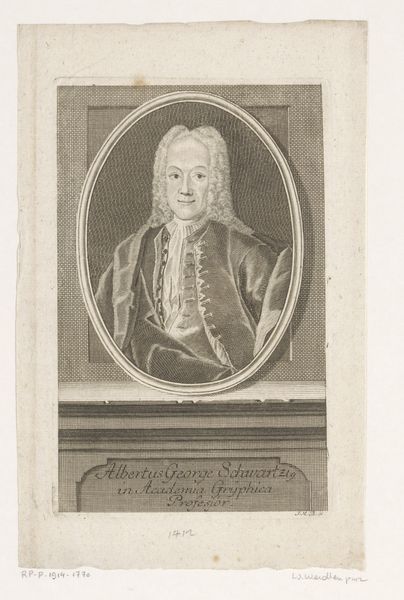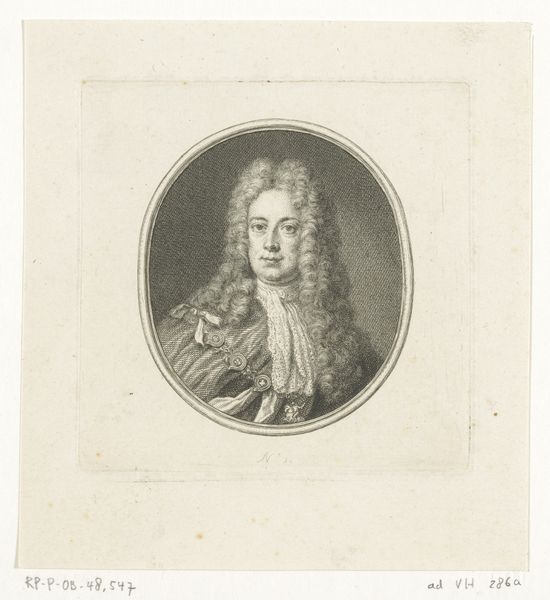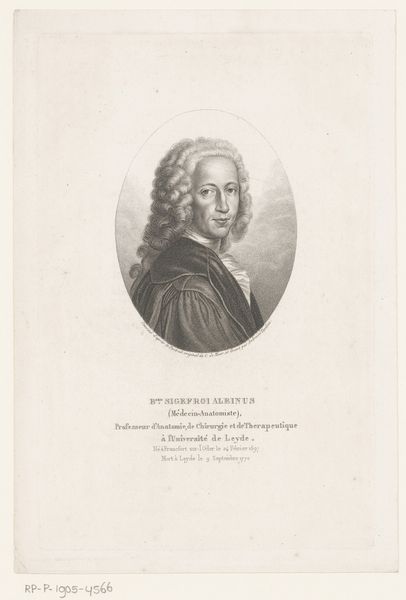
engraving
portrait
baroque
figuration
line
history-painting
engraving
Dimensions: height 155 mm, width 115 mm
Copyright: Rijks Museum: Open Domain
This portrait of Emperor Charles VII was made by Dominique Sornique sometime in the first half of the 18th century. It's an engraving, meaning that the image was incised into a metal plate, inked, and then transferred to paper through a printing press. The lines that define Charles’s features and clothing are crisp, a testament to the engraver's skill. Look closely, and you'll notice how the density and direction of these lines create subtle variations in tone and texture, from the soft folds of his lace collar to the rich brocade of his robe. This painstaking process required immense patience and control, as each line had to be carefully considered and executed to achieve the desired effect. Engraving was not just a technique, but a means of mass production, allowing for the wide dissemination of images and ideas, and the assertion of power. In this portrait, the labor-intensive process of engraving serves to elevate the status of the sitter, Charles VII, reinforcing his image as a powerful and cultured ruler. By appreciating the work involved, we gain a deeper understanding of the social and cultural significance of this portrait.
Comments
No comments
Be the first to comment and join the conversation on the ultimate creative platform.
